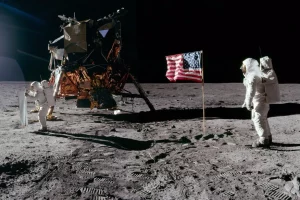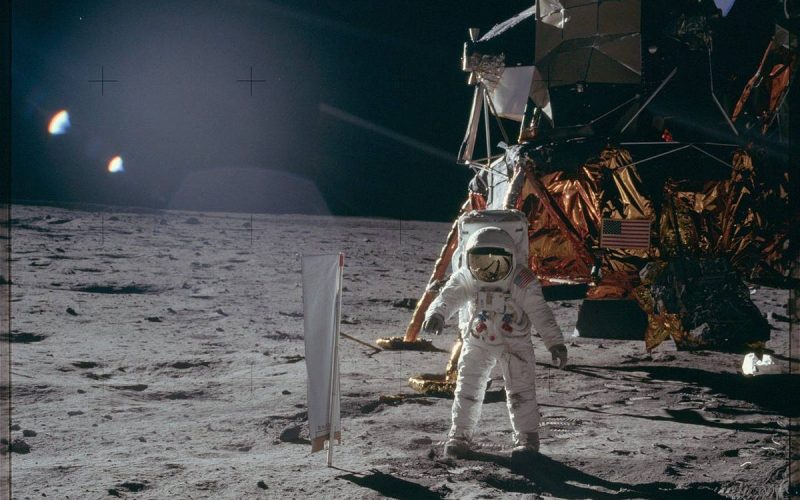Space exploration has long captivated humanity’s imagination, from ancient stargazers to modern astronomers. With advancements in technology, our reach into the cosmos has grown exponentially. As we look toward the future, space exploration promises to yield even more ground breaking discoveries, fostering scientific progress, technological innovation, and international cooperation.
Historical Context

Space exploration began in earnest with the launch of Sputnik 1 by the Soviet Union in 1957. This event marked the beginning of the space age and spurred the United States to ramp up its own space efforts, culminating in the Apollo moon landings. The competition between these two superpowers during the Cold War accelerated advancements in space technology and exploration.
Current State of Space Exploration
Today, space exploration is no longer the exclusive domain of a few government agencies. Numerous countries and private companies are actively participating in space missions. NASA continues to lead with missions like the Mars Perseverance Rover and the Artemis program, which aims to return humans to the Moon by 2024. Meanwhile, companies like SpaceX, Blue Origin, and Boeing are pioneering commercial spaceflight, reducing the cost of access to space and opening new possibilities for exploration.
The Role of Private Companies
Private companies have revolutionized space exploration. SpaceX, founded by Elon Musk, has been particularly influential, achieving milestones such as the first privately-funded spacecraft to reach the International Space Station (ISS) and developing reusable rockets that significantly lower launch costs. Blue Origin, founded by Jeff Bezos, aims to make space travel more affordable and accessible, with ambitions of establishing human settlements in space. These companies are not only advancing technology but also stimulating economic growth by creating new industries related to space.
Technological Innovations
Technological advancements are crucial for the future of space exploration. Reusable rockets, advanced robotics, and artificial intelligence (AI) are transforming how we explore space. Reusable rockets, like SpaceX’s Falcon 9, drastically reduce the cost of space travel. Robotics and AI enhance the ability to conduct complex missions, such as the autonomous navigation and scientific experiments performed by the Mars rovers. Additionally, advancements in propulsion systems, such as ion thrusters and nuclear propulsion, promise faster and more efficient space travel, making missions to distant planets more feasible.
International Cooperation
International cooperation plays a vital role in space exploration. The ISS is a prime example of what can be achieved when countries collaborate. It has hosted astronauts from various nations and facilitated numerous scientific experiments. Future missions, such as the Lunar Gateway and potential Mars expeditions, will likely involve multiple countries working together, sharing knowledge, resources, and expertise.
Mars Colonization
Mars has always been a focal point for future space exploration. The red planet’s similarity to Earth makes it a prime candidate for colonization. NASA’s Perseverance rover is currently exploring Mars, searching for signs of past life and gathering data to prepare for human missions. SpaceX’s Starship is being developed with the goal of carrying humans to Mars, potentially within the next decade. Establishing a human presence on Mars would be a monumental achievement, paving the way for further exploration and possibly the establishment of a self-sustaining colony.
The Moon as a Gateway
Returning to the Moon is seen as a crucial step for future space exploration. The Moon serves as an ideal testing ground for new technologies and a potential launch site for missions to Mars and beyond.

NASA’s Artemis program aims to land the first woman and next man on the Moon, establishing a sustainable human presence by the end of the decade. Lunar exploration can provide valuable insights into resource utilization, habitat construction, and life support systems, which are essential for longer missions.
Challenges and Risks
Despite the exciting prospects, space exploration faces significant challenges and risks. The harsh environment of space poses numerous hazards, from radiation exposure to micrometeorite impacts. Psychological challenges of long-duration missions, such as isolation and confinement, also need to be addressed. Furthermore, the high costs associated with space missions require substantial investment and funding. Ensuring the safety of astronauts and the sustainability of missions will be critical for future endeavors.
Ethical Considerations
Ethical considerations are becoming increasingly important as we venture further into space. Issues such as planetary protection, space debris, and the potential exploitation of extraterrestrial resources need careful consideration. It is essential to develop international regulations and agreements to ensure that space exploration is conducted responsibly and sustainably, preserving the integrity of celestial bodies and protecting Earth’s environment.
Analysis Table
| Aspect | Current State | Future Prospects |
| Technology | Reusable rockets, advanced robotics, AI | Nuclear propulsion, autonomous spacecraft, advanced habitats |
| Private Companies | SpaceX, Blue Origin, Boeing | Increased commercial spaceflight, space tourism |
| International Cooperation | ISS, joint missions | Lunar Gateway, international Mars missions |
| Mars Exploration | Mars rovers, data collection | Human missions, potential colonization |
| Lunar Missions | Artemis program, lunar research | Sustainable lunar presence, launch site for deep space missions |
| Challenges | High costs, safety risks, psychological issues | Addressing radiation, micrometeorites, and funding |
| Ethics | Planetary protection, space debris | International regulations, sustainable exploration |
Comparative Table
| Factor | Government Agencies | Private Companies |
| Funding | Taxpayer-funded, budget constraints | Private investment, venture capital |
| Innovation | Incremental, risk-averse | Rapid, risk-tolerant |
| Goals | Scientific research, national prestige | Profit, technological advancement |
| Mission Types | Large-scale, long-term | Diverse, including space tourism and satellite launches |
| Collaboration | International partnerships (ISS, Lunar Gateway) | Competitive but increasing partnerships with governments |
| Impact on Economy | Indirect, long-term benefits | Direct, job creation, new industries |
| Public Engagement | Educational outreach, inspirational | Commercial interest, media coverage |
Conclusion
The future of space exploration is bright and filled with potential. With the combined efforts of government agencies, private companies, and international collaborations, we are on the brink of a new era in space exploration. Technological innovations will continue to push the boundaries of what is possible, while addressing the challenges and ethical considerations will ensure that this progress is sustainable. As we look to the stars, the next decades promise to bring unprecedented discoveries and advancements, making space exploration one of the most exciting frontiers for humanity.












